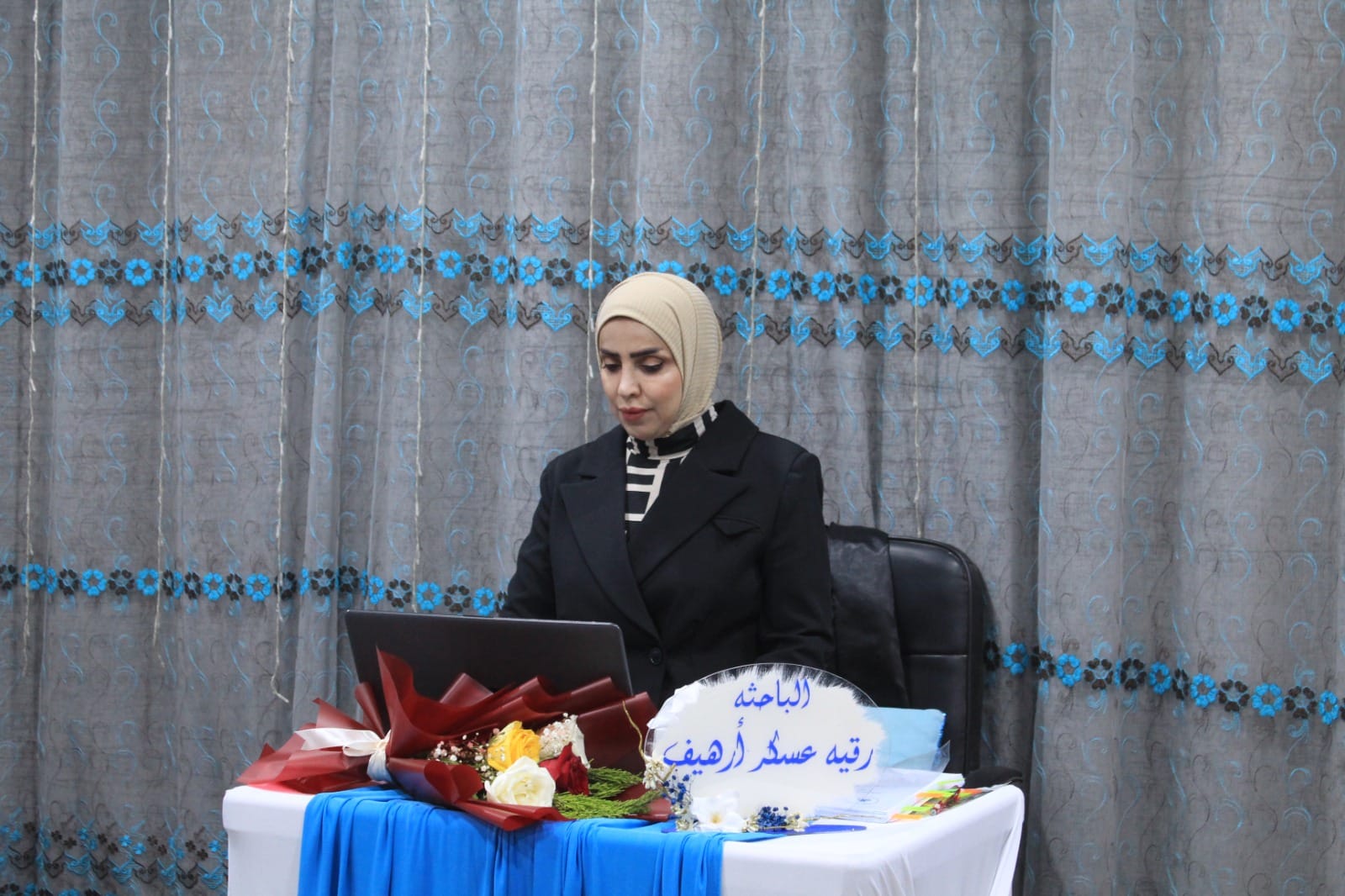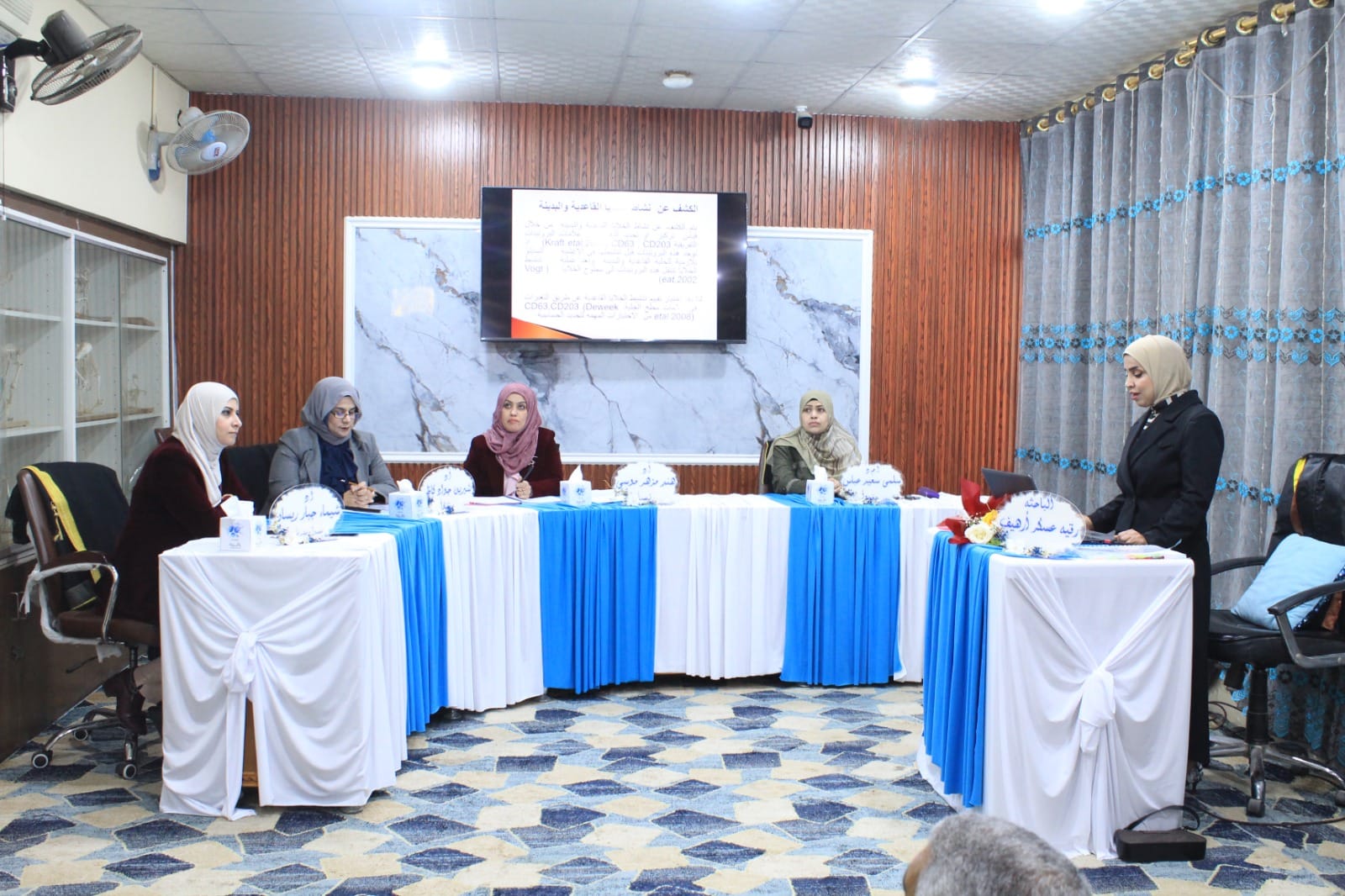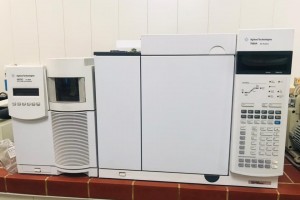
The College of Education for Pure Sciences, Department of Life Sciences, discussed a master’s thesis on (Evaluating the role of differential proteins CD203, CD63 as diagnostic immunological indicators of food allergies)
The message submitted by the researcher (Roqaiya Askar Arhaif) included:
Studying the samples of the current study, it was noted that the percentage of food allergies is higher compared to other types of allergens.
There is a direct relationship between the level of quantitative IgE antibodies and food allergies
The effect of age and gender on the ability to produce IgE antibodies in food-allergic patients
Association of interleukin IL33 with food allergy and its exacerbation.
There is a relationship between high concentrations of IL33 and IgE and the expression of basophils and mast cells
There is a relationship between high concentrations of differential proteins CD203 and CD63 with food allergies
7- An increase in differential proteins CD203 and CD63 is an indicator of the activation of basophils and mast cells in allergic patients.
The message was recommended
Relying on the immunological criteria studied in the current study, IL33 and IgE, as diagnostic criteria
For allergies
The use of basophil and mast cell activation tests to diagnose food allergies
More epidemiological studies are being conducted to evaluate the prevalence of food allergies
Conducting genetic studies of immune factors and evaluating their relationship to the development of food allergies
And conducting studies outside the body of the organism to determine the relationship of basal and mast cells









